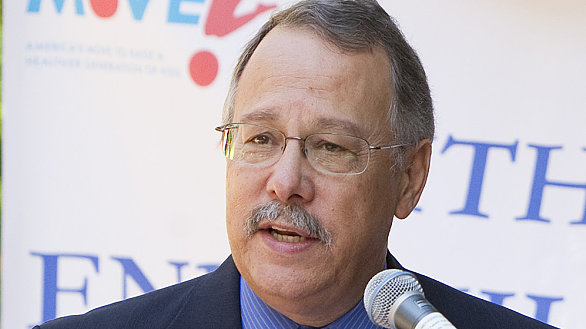By Gil Hanke
Sept. 20, 2018 | NASHVILLE, Tenn. (UMNS)
If there is one theme within our society, it is “uncertainty.” We hear that message in the news about all kinds of issues within the U.S. We even hear the theme of uncertainty when we talk about the future of The United Methodist Church. Many within the church are taking sides, while others are weary of the conflict.
Please put all that aside for a moment. I want to talk to you about something that is certain.
No matter what happens at the called session of the General Conference, on Feb. 27 — the day after the event — there will still be men, women and youth in your community who need to have an “on-growing” relationship with Jesus Christ. That is a fact.
On Feb. 27, thousands of people who do not belong to any faith community will know nothing about the events that took place in St. Louis — and they will not care. That is also a fact.
Three days after delegates have left the Gateway City, United Methodist pastors around the world will be preaching on the Transfiguration of Jesus.
On March 3, they will retell that mountaintop experience where Jesus appeared with Moses and Elijah, but few pastors will spend that Transfiguration Sunday discussing what happened in St. Louis. They are more likely to invite parishioners to a Shrove Tuesday pancake supper and an Ash Wednesday service. That is also fact.
For all our worrying and debating, few people within our churches — and no one outside our churches — will know which of the three or four plans delegates accepted or revised. That is also a fact.
The General Commission on United Methodist Men joins with other United Methodist general agencies that focus on ways to reach those without church homes and to provide resources and experiences that enrich the lives of those within our congregations.
No matter what happens in St. Louis, there will be men, women and youth who want to develop a closer relationship with Jesus Christ. And there will be others who need to find church homes where they can discover that life-enriching experience. That is a fact that requires our attention.
Between now and the Feb. 23 opening of the called session, I suggest the following:
Put yourself to doing. Serve others, volunteer at a shelter, visit a nursing home or folks who are homebound, call members of your church who don’t attend regularly, call people who are ill and not able to attend worship, offer a ride, read to a child, help with the Cub Scouts who meet at your church. Put yourself on a high-service diet.
Restrict your noise intake; put yourself on a low-noise diet. Watch the news, but not four times a day. Read emails pushed to you, but only from positive, respectful persons and only for a few minutes a day.
Seek silence: for prayer, devotional time, searching the Scriptures. Enjoy nature. Take a walk.
Feb. 27 will soon be a tomorrow and then it will be another yesterday. There is an urgency for action. We should not wait to offer them Christ.
No matter which pathway our denomination takes, on Feb. 27, we will still be in the business of making disciples of Jesus Christ for the transformation of the world. You have an important role to play in that life-changing mission. That is the most important fact.
Hanke is general secretary of the General Commission on United Methodist Men.

